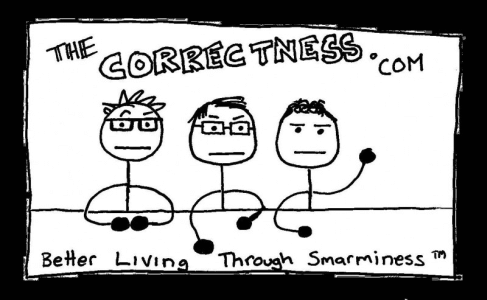12 Days of Chipmunks: “Jingle Bells”
DECEMBER EIGHTH: PERFECTION
I apologize sincerely for not providing a link to “The Chipmunk Song” yesterday. Apparently the public library though it would be a fine idea to block the Youtube website from its patrons. I find it strange that a library would ban information from the public, especially considering their policy against book-burning, but I digress. I have found a new location from which to post my articles, and I know for a fact the owners won’t be home from vacation for at least another two weeks.
The problem with the human mind is the inefficient machine to which it is attached. The brain is sluggish, self-serving and mostly stupid, and procrastination and plagiarism are by-products of human biology interfering with true creativity. Or at least, that’s what James Pierpont proposed in his 1857 scientific paper “The One Horse Open Sleigh”, in which he famously compared the creative process to a one horse open sleigh, with the sleigh driver being the idea, the sleigh itself being the artistic medium, and the horse being the human brain. The idea would “drive” the brain forward as the driver would a horse; therefore, the only limiting factor in creativity was, in fact, the horse—or the brain. Many artists disagreed with Pierpont’s perspective, believing that it was the brain which drove ideas forward, not the other way around. Pierpont dismissed these claims, and accused the artists of being “afraid of progress” and “too attached to their brains”. Determined to prove his hypothesis correct, Pierpont constructed the most advanced musical instrument of its time. Possibly of all time.
The Christmophone.
It was a legendary piece of technology, so named because Pierpont finished developing it around Christmastime, and left out of many history books simply because of its unbelievable nature. But it was real. I know this, because I saw its remains* on display in the Museum af Julen in Denmark (this was before the Great Fire of 2002, which of course destroyed the Museum af Julen, all its artefacts, and twenty percent of Denmark itself). The Christmophone is widely agreed—by those who don’t outright deny its existence—to be the first artificial intelligence ever developed. And, proving Pierpont right once and for all, it was infinitely more creative than any human mind. Once fed a string of words—as many as 10,000, or as few as two—it would instantly churn out a song in the span of three seconds. The song, thematically and content-wise, would always be perfectly complementary to the information fed into the machine. It was as though creativity were a stream full of fish, and the Christmophone, using the words fed into it as bait, knew exactly which fish it could catch. And every time, without fail, it came back with a full pail of fish. It was a far greater angler than the human brain. And a more efficient horse.
As an inside joke between himself and his creation, Pierpont fed the words “One Horse Open Sleigh” into the Christmophone; the resulting song, “Jingle Bells”, is still well known today—a testament to the creative power of the machine, and proof of its ability to create a perfect song that never becomes tiresome. Never.
http://en.wikipedia.org/wiki/File:Jingle_Bells_Or_The_One_Horse_Open_Sleigh_Complete.ogg
The above link is a rare recording of the original Christmophone version of “Jingle Bells”. Note the original chord progression in the chorus. Vitamin C would later steal this progression for their famous “Graduation”; the success of “Graduation”, scientists agree, is due to these chords’ melodic perfection, not the song itself.
Ross Bagdasarian Sr. was militantly against the Pierpont school of thought. If ideas were simply “there in the air”, why did they require a brain—or a machine, for that matter—to be pulled into being? Why didn’t paintings and sculptures simply appear out of thin air? It certainly wasn’t the universe’s idea to bring about world peace on a Christmas album about singing rodents, or else why would it go through all the trouble of using Bagdasarian as a medium? If nature didn’t want any more wars, it wouldn’t have made humans so violent to begin with. “The only way Pierpont’s theory could be true,” Bagdasarian argued in his 1958 book A Higher Voice, “is if the grand being in charge of everyone’s ideas…is totally insane. If there’s a machine that delivers our ideas to us, clearly that machine is malfunctioning.” The “Jingle Bells” track on Christmas with the Chipmunks is a parody of the original “Jingle Bells” written by the Christmophone, in that the chorus, throughout the song, begins to stutter and repeat itself (“Jingle bells, jingle-jingle bells-bells jingle-jingle all the way!”) like a malfunctioning machine. It reminds us that no one is perfect, and though machines (and Gods) may be able to do what humans cannot, we must never trust our problems to any sort of higher power. We are the ones who decide our fate. When we give up that control, we have given up on life itself.
*The Christmophone was destroyed by Luddites only a year after its construction. What other songs it produced besides “Jingle Bells” are as yet unidentified, though it is generally agreed there were at least four.

